‘Alexei Navalny best chance of bringing down Vladimir Putin’
President Putin is facing one of the biggest challenges to his grip on Russia since he came to power amid huge mass protest arrests.
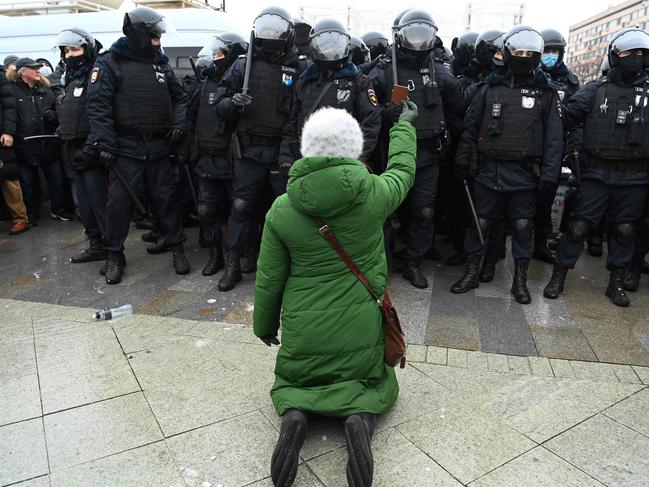
The Kremlin accused the United States of supporting nationwide opposition protests sparked by the jailing of Alexei Navalny as President Putin faced one of the biggest challenges to his grip on Russia since he came to power.
More than 3,600 people were arrested yesterday (AEDT) when riot police broke up demonstrations against the imprisonment of the opposition leader. Protesters took to the streets in more than 100 towns and cities, from Moscow and St Petersburg, Mr Putin’s home town, to Vladivostok on the Pacific coast.
The brutal crackdown drew condemnation from Western countries. Britain and the newly installed US administration accused Moscow of using violence against peaceful demonstrators. Jean-Yves Le Drian, the French foreign minister, called for sanctions.
Mr Navalny, 44, was arrested eight days ago after flying back to Russia from Germany, where he had been recovering from a nerve agent poisoning that he says was ordered by Mr Putin and carried out by the FSB spy agency. He faces more than 13 years in prison for alleged parole violations and claims that he embezzled donations to his anti-corruption organisation. He says the charges are politically motivated.
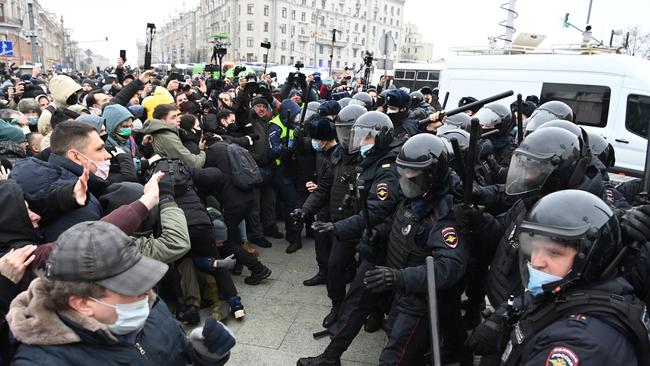
In Moscow about 50,000 people braved a massive police presence to gather on Pushkin Square near the Kremlin. Streets were also jammed with demonstrators chanting, “Free Navalny!” and “Putin is a thief!” as passing motorists honked their support. “We are sick of Putin’s lawlessness,” said Marina, a 65-year-old protester.
Mr Navalny’s wife, Yulia, was among those taken into custody. It was believed to be the biggest unsanctioned protest to have taken place in Moscow since Mr Putin, 68, began his first presidential term in 2000. Scores of people remained in custody overnight.
Reports of police brutality caused widespread anger. In St Petersburg, a 54-year-old woman cracked her head on the ground after being kicked in the stomach by a police officer. Video showed that Margarita Yudina was assaulted as she asked police why a teenage boy was being arrested. In Khabarovsk, in Russia’s far east, police are said to have lined detainees up against a wall and beaten them with truncheons.
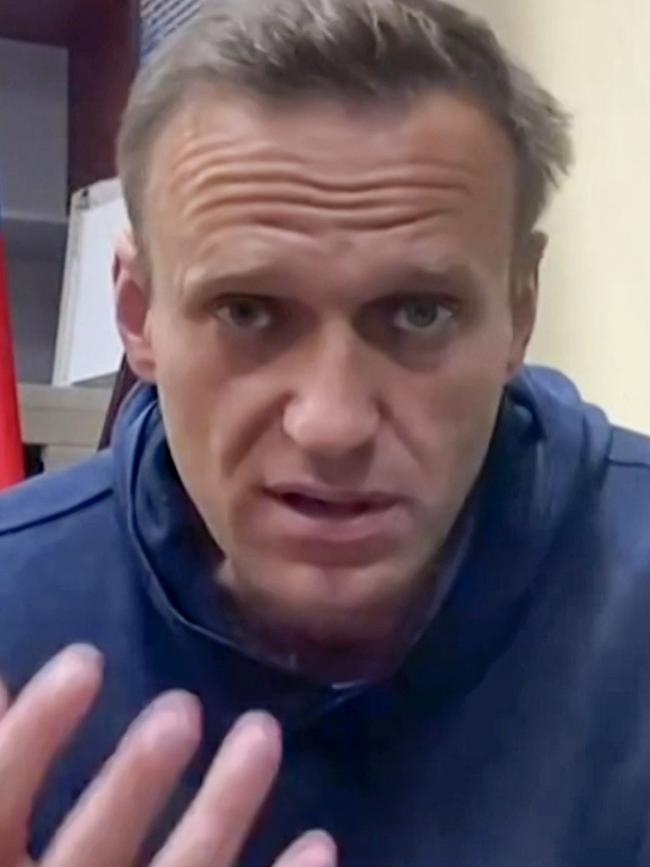
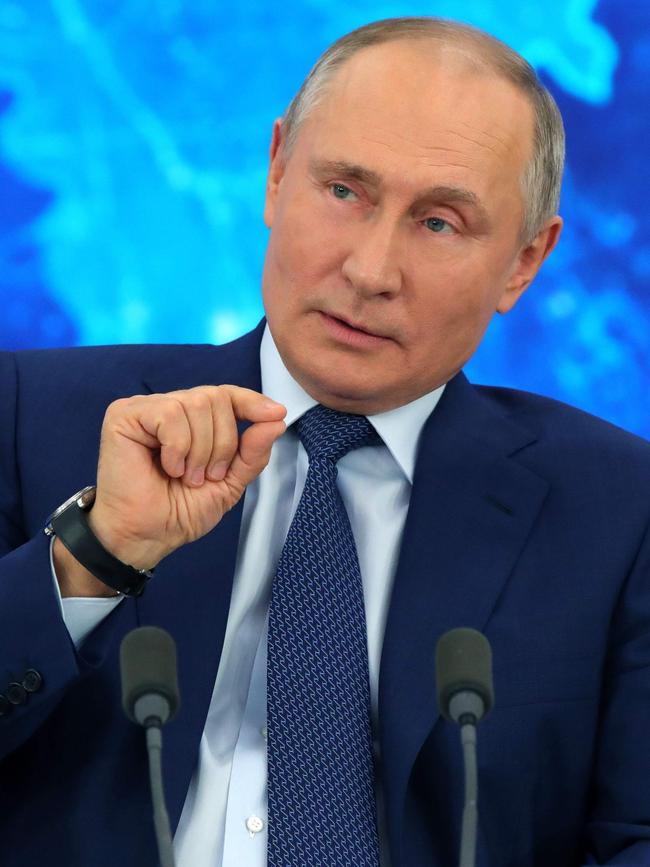
Protesters in Moscow shattered the window of an official car with presidential administration number plates. The driver was reported to have lost an eye.
Margarita Simonyan, head of Russia Today, the state-funded television channel, described the demonstrations as “meaningless and merciless”, a reference to a poem by Alexander Pushkin.
In Kursk, western Russia, a police officer was fired after recording a video in support of Mr Navalny. “I am afraid that when my children grow up, they will ask me, ‘Dad, what have you done for us to live in a free, prosperous country?’ And I will have nothing to say,” Ruslan Agibalov said.
Protesters marched to the prison in Moscow where Mr Navalny has been held since his arrest. Dozens of people were detained by riot police. Mr Navalny’s allies have called for more demonstrations until he is released.
Dmitry Peskov, Mr Putin’s spokesman, claimed that Washington had offered its “direct support” for the opposition. He was speaking after the US embassy in Moscow accused the Kremlin of denying Russians the right to peaceful protest. “This is direct interference in our domestic affairs,” Mr Peskov told state television.
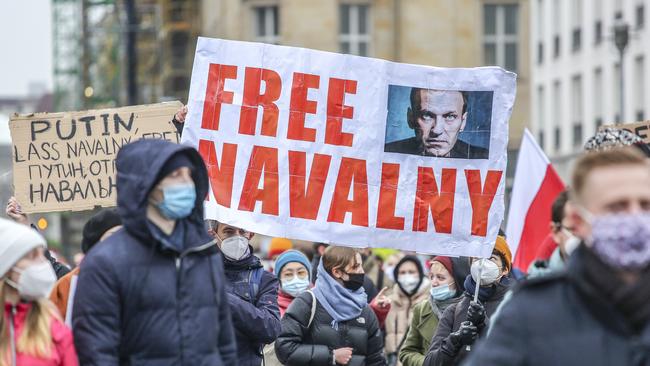
The row intensified after the US embassy put an alert on its website that warned Americans to stay away from opposition rallies for their own safety — standard practice for many embassies. The alert, which listed 12 cities where protests were due to take place, was depicted by Moscow as a set of instructions for demonstrators.
The protests were galvanised by the release on Tuesday of an investigation into what Mr Navalny alleged was Mr Putin’s pounds 1 billion palace on the coast of the Black Sea. The video, which was recorded before Mr Navalny’s arrest, has been watched more than 80 million times. Some protesters carried lavatory brushes in reference to the colossal sums believed to have been spent on luxury facilities at the palace.
Mr Peskov insisted that the palace had nothing to do with Mr Putin. “These are pure lies,” he said.
The Kremlin sought to downplay the rallies. “People will say lots of people went to these illegal demonstrations,” Mr Peskov said. “No, very few people went, but lots of people voted for Putin.”
-
Navalny ‘best chance of bringing down Putin’
ANALYSIS
By Marc Bennetts
The protesters who braved police truncheons in Moscow and other Russian cities at the weekend had one thing in common: they want the Kremlin to release Alexei Navalny (Marc Bennetts writes). Yet the demonstrations were not just about the jailed opposition leader.
The jailing of President Putin’s biggest domestic foe was a lightning rod for widespread discontent that brought together a disparate group of protesters with very diverse political views. Yet all of them see Mr Navalny as their best chance of bringing down Mr Putin and are willing to put aside their political differences to try and achieve that aim.
“It’s easier to discuss who is left-wing and who is right-wing in democratic countries,” said Lyubov Sobol, one of Mr Navalny’s most prominent allies. “People here are divided into who is for Putin and who is against him.”
Mr Navalny’s political stance is not easily decoded. A former nationalist activist, he has in the past compared illegal immigrants to “rotten teeth”. He backed the Kremlin in its war against Georgia in 2008 and sought to justify nationalist violence that engulfed a region south of Moscow in 2013.
In recent years, however, he has aligned himself with liberal Russians and many of his younger supporters are unaware of his nationalist past, which he has not publicly repudiated.
His political program is now in favour of same-sex marriage and the legalisation of soft drugs, stances that are also controversial in Russia.
The opposition’s willingness to consolidate around Mr Navalny is not the only thing the Kremlin has to worry about. About four out of every ten people who demonstrated in Moscow on Saturday were attending a protest for the first time in their lives, an independent survey indicated.
THE TIMES

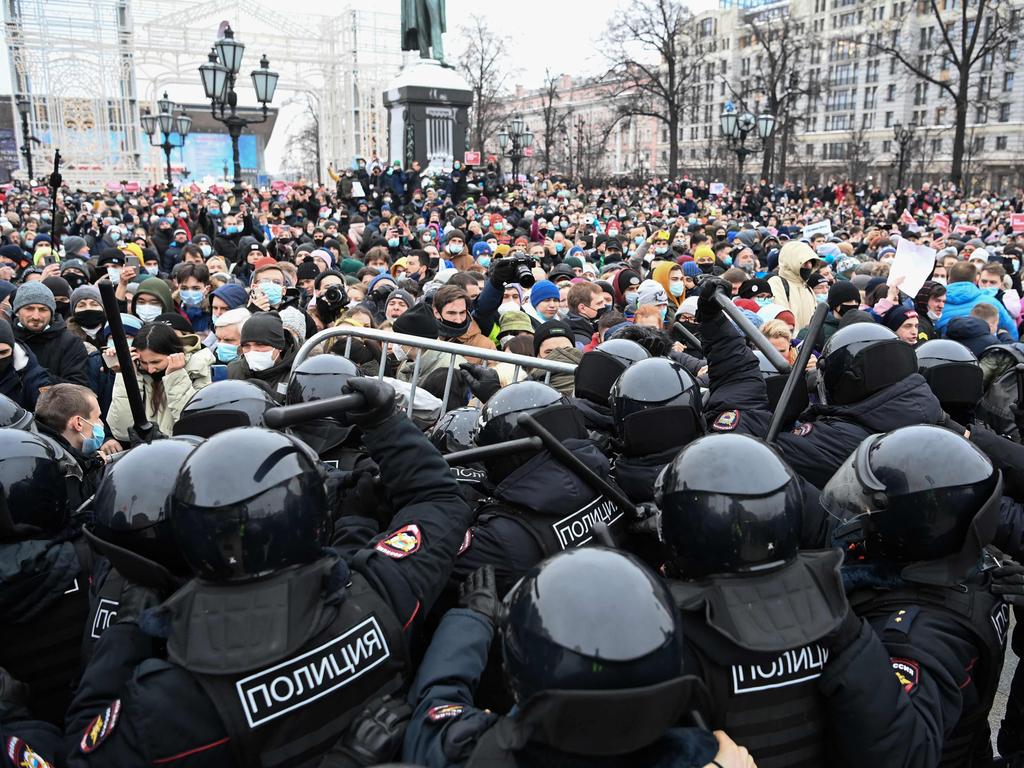
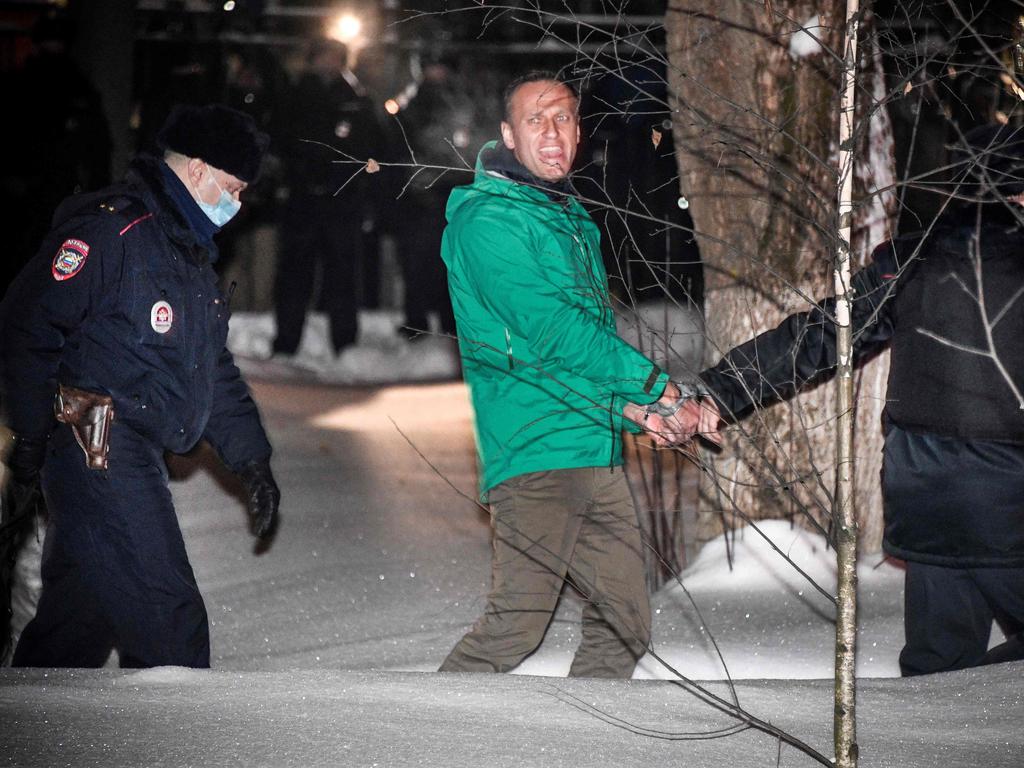
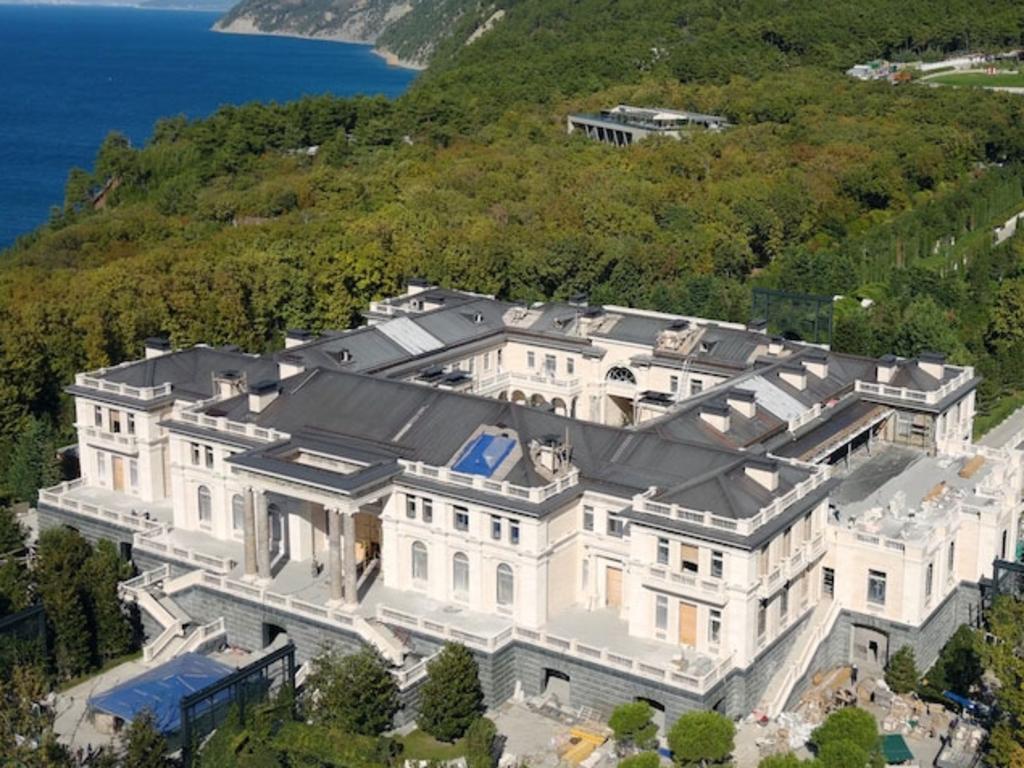
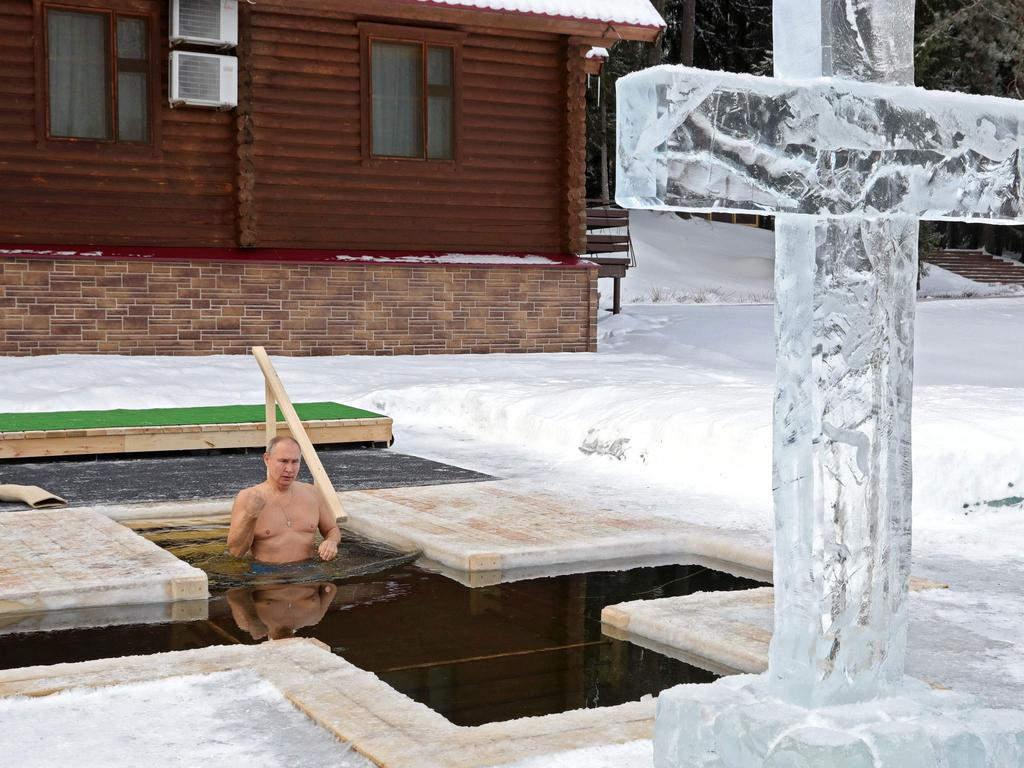
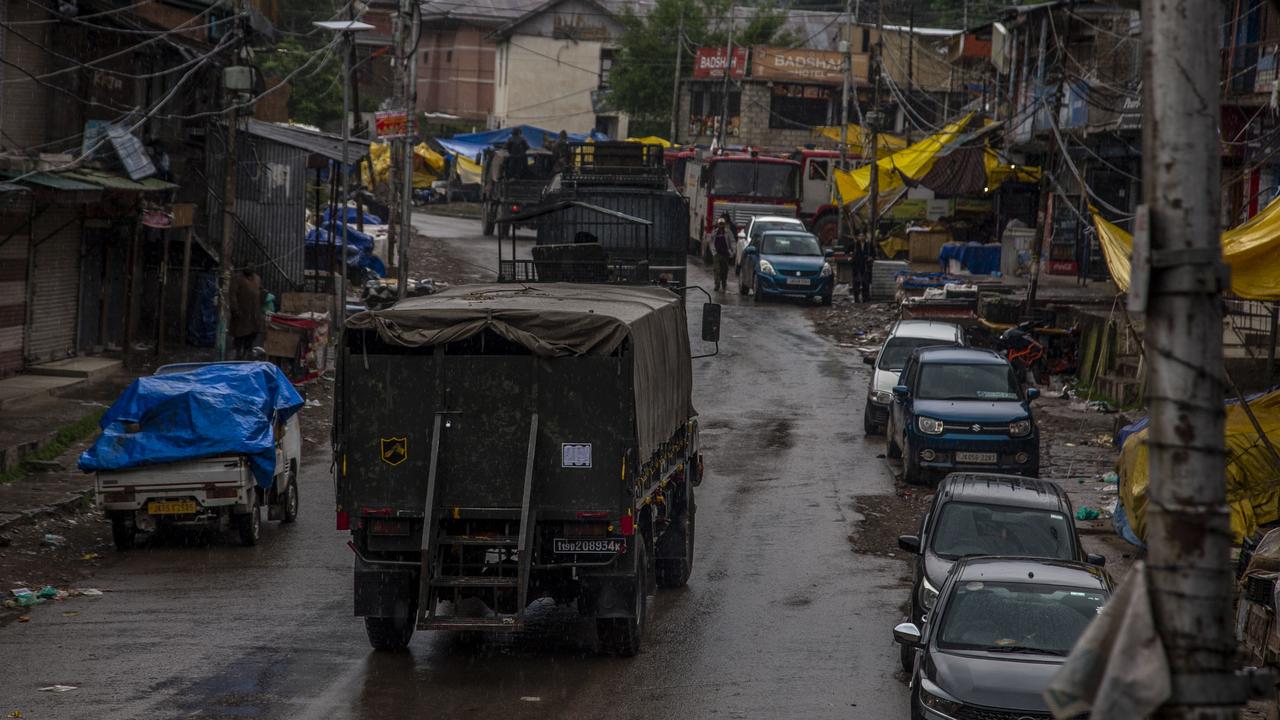
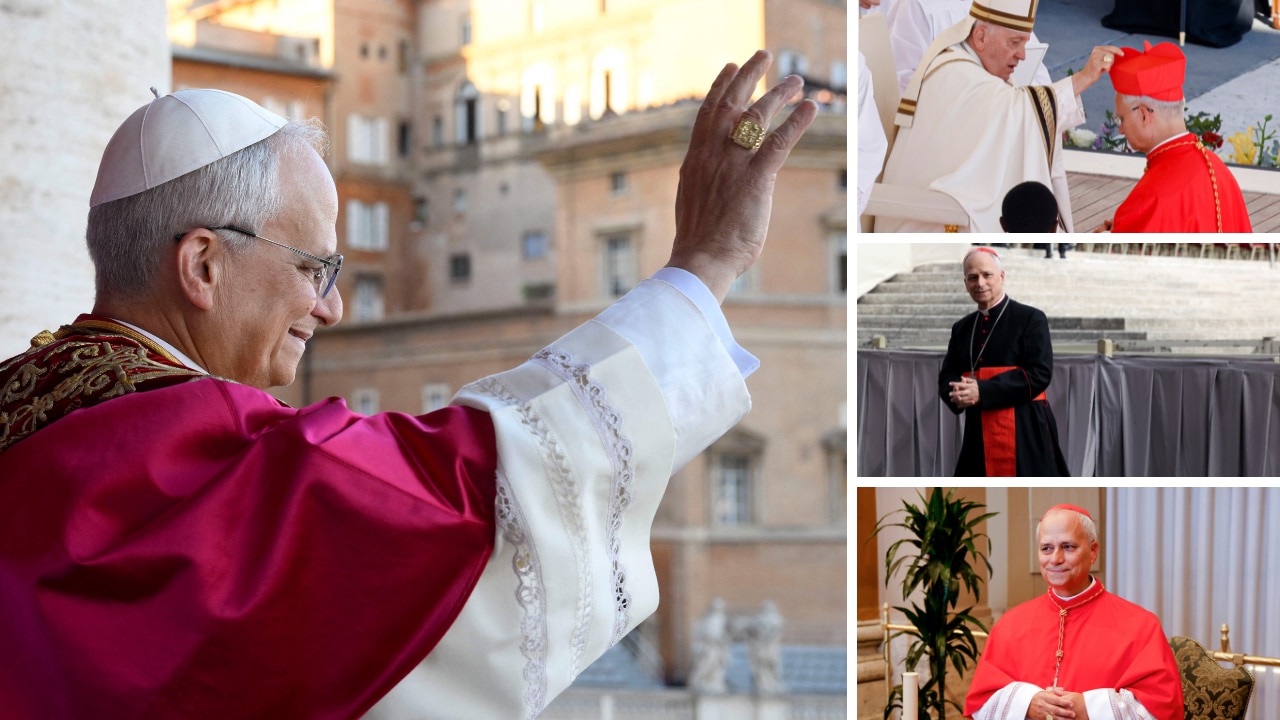
To join the conversation, please log in. Don't have an account? Register
Join the conversation, you are commenting as Logout